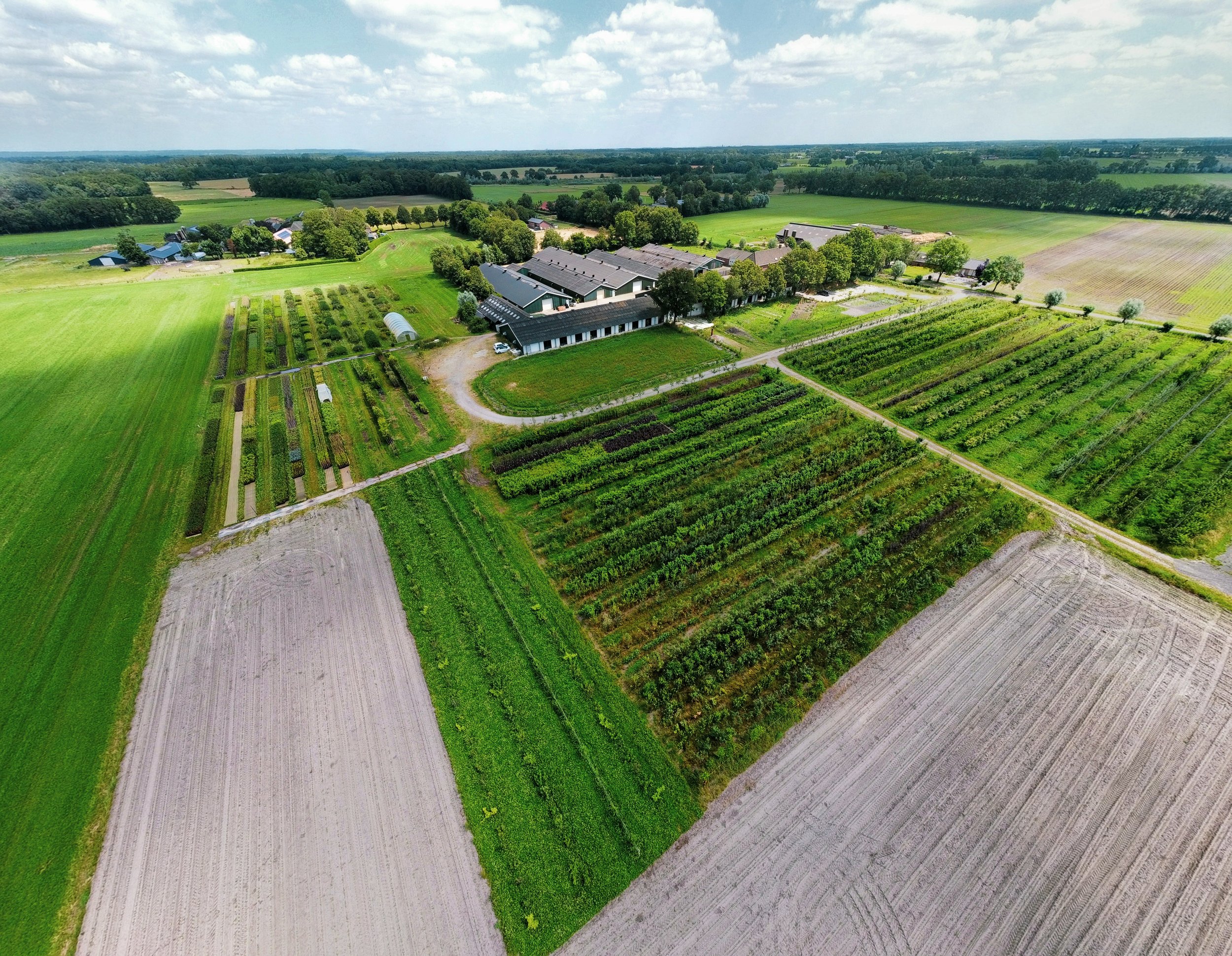Are you preparing to plant a large-scale food forest or agroforestry project somewhere in Europe? Then we would like to help you here. Agroforestrysupplies is highly specialised in varietally stable, resistant and highly productive trees, shrubs and plants. The plant varieties below already provide a brief overview of our wide range. Feel free to contact us to receive the full price list and we will be happy to help you.
-

Aronia
The varieties “Nero” and “Hugin” remain slightly smaller and are mainly used for mechanical harvesting. “Viking” and “Amit” both bear fruit well but are also somewhat larger in size, making them more interesting for food forests.
-

Castanea
The favored climax trees in many of our agroforestry designs. In contrast to the smaller “Doré de Lyon”, its seedlings can grow quite large. They possess all positive characteristics, late budding, are resistant to Phytophthora, and have large fruits.
-

Corylus avellana
A beautiful native shrub with various rootstocks. In addition to the most cultivated varieties (“Barcelona”), we are especially fond of the beautiful, large nuts of the “Géant d'Halle” and its pollinator (“Lange Spaanse”). Finally, there is the Corylus avellana “Rode Zeller”, which combines a beautiful reddish-brown leaf with medium-sized fruits in the autumn
-

Elaeagnus
An indispensable shrub in every food forest or agroforestry system. In addition to tasty berries, this vigorous plant is an essential nitrogen fixer. We have a wide range, including well-known varieties (“Amber”, “Big Red”, “Brilliant Rose”, “Sweet 'n Tart”, ...) as well as some new German breeds.
-
Hippophae rhamnoides
An easy but not-to-be-missed shrub as a fruit-bearing nitrogen fixer with harvest reliability. Hergo does not spread and can also be machine-harvested; “Friesdorfer Orange” is self-pollinating. In food forests, we also like to work with varieties such as “Orange Energy”, “Sirola”, and “Askola”.
-

Juglans regia
Thanks to the breeding of a walnut variety developed in-house, we have something unique to offer to enthusiasts of walnuts. Additionally, we have seedlings from “Bulgaria” that are well-suited for a climate with mild winters. Finally, there are well-known French production varieties such as “Fernor” and its pollinator “Fernette”, which are highly resistant to the walnut husk fly, and the most cultivated walnut worldwide, “Chandler”.
-
Lonicera caerulea
The earliest outdoor fruit with winter-hardy fruits and flowers (up to -8°C) that can be easily machine-harvested. After years of trial periods, we have the best experiences with the following prolific-bearing varieties: “Aurora” (early), “Boreal Blizzard” (mid), “Boreal Beauty” (late), and their pollinators (“Honeybee”, “Boreal Blizzard”, “Boreal Beast”)
-

Malus domestica
A wide range of apples with rootstocks suitable for sandy soil. The “Rode van Boskoop” is a strong grower, exceptionally well-suited for processing, and has a long storage life. The “Gloster” is a self-pollinator that is disease-resistant and reliable in terms of yield. The newer varieties “Topaz”, “Champion”, “Rubinola” are scab-resistant, taste good, and are also particularly productive.
-
Ribes
When it comes to red berries, we are talking about the classics of classics that still prove their worth (“Jonkheer van Tets”). Furthermore, we opt for the most commonly used varieties in commercial cultivation for black and white currants, gooseberries, jostaberries, tayberries, and (thornless) blackberries. For raspberries, a distinction is made between autumn and summer varieties.
-

Pyrus
In addition to the well-known traditional dwarf trees like “Conference”, “Rode Claps” and “Beurre Hardy”, we also explore more exclusive varieties such as the pear-shipova or the Japanese pear (“Nijiseiki”).
-

Stone fruit
Regarding peaches, we are talking about both unique blood peaches and late-ripening, large varieties that are 100% free from curl disease. In poor and dry soil, you can opt for apricots such as “Hargrand” and its pollinator “Goldrich”. Enthusiasts of hybrids can go for the Pluot “Flavour King” or the Russian plum “Komeet”. For sweet cherries, due to the spotted-wing drosophila, we often choose an early variety like “Rivan”. “Opal” and “Victoria” are both reliable plum varieties.
-

Soil improver
To achieve a mineral-rich soil, we offer lava flour, lava gravel, and compost. Depending on the soil type and condition, we assess the most appropriate solution. All products are available in small or large quantities.

At our 20-hectare nursery, we work with the firm belief that no pesticides are needed. We believe it is important to have our cultivation process as much under control as possible. We therefore grow a large proportion of our planting stock ourselves at the nursery. In addition, we work together with family/planting companies in the Netherlands, France, Poland and Germany who propagate our own planting material. We work as consciously as possible in several areas. Our plants are grown in wood fibre instead of coconut fibre. We reuse our pots made of recycled plastic. Our electric vehicles are charged via solar panels and the other vehicles run on biodiesel (CO2 neutral and much lower emissions).





